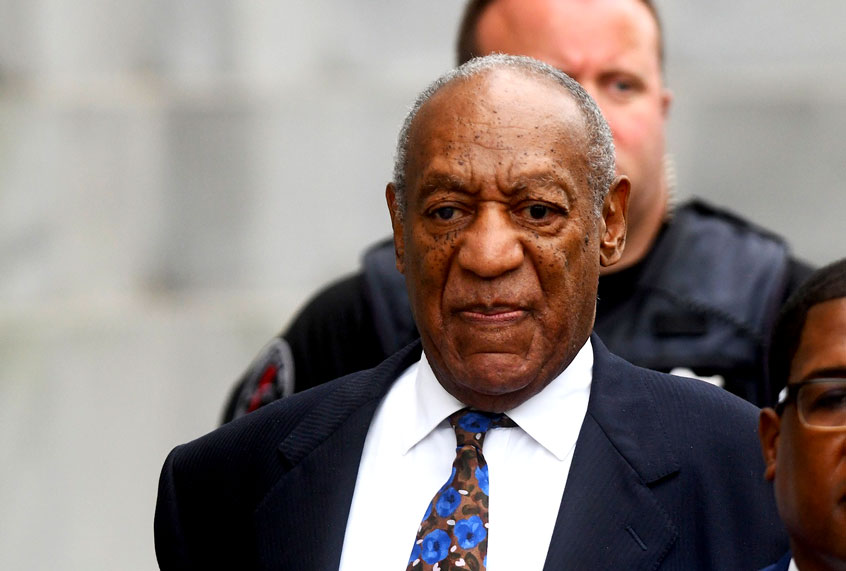Bill Cosby, the alleged serial date rapist currently serving a three-to-10-year sentence for drugging and sexually assaulting a former Temple University employee at his home in 2004, has been denied parole by the Pennsylvania Parole Board, according to a letter obtained by CNN on Friday.
Per the letter, Cosby – who has been serving his sentence in a prison outside Philadelphia since being sentenced in 2018 – must “participate in and complete additional institutional programs” to be eligible for parole. Specifically, Cosby must successfully participate in and complete a treatment program for sex offenders and violence prevention. In its letter, the Pennsylvania Parole Board also cited Cosby’s “failure to develop a parole release plan” and a “negative recommendation by the Department of Corrections” as reasons for denying him parole this week.
Cosby was first accused of date rape and sexual abuse by several women decades before the #MeToo movement rose to prominence in the fall of 2017, sparked by extensive reporting on the dozens of sex crimes committed by disgraced Hollywood executive Harvey Weinstein. But for the most part, the allegations were ignored until an iconic 2015 cover story by New York Magazine featuring 35 of Cosby’s accusers sitting in rows of chairs.
The magazine noted that the dozens of women accusing Cosby functioned “almost as a longitudinal study — both for how an individual woman, on her own, deals with such trauma over the decades and for how the culture at large has grappled with rape over the same time period.” The first allegation against Cosby was made in the 1960s, a time when acts of rape and sexual violence were still mystified as products of stranger danger, rather than acts committed by partners, friends, family, and certainly not nationally beloved celebrities. Prior to Cosby’s 2018 conviction, the allegations against him were primarily shrugged off or even widely joked about.
For the dozens upon dozens of women who have accused Cosby of using drugs to rape them through the decades, it took time — far too much of it — and sweeping cultural shifts for the disgraced actor to finally be held accountable. Cosby’s first trial took place in June 2017, and ended in a mistrial. He was eventually convicted and sentenced more than a year later in September 2018, found guilty of three counts of aggravated indecent assault.
The parole board’s denial of Cosby’s request follows his legal team’s appeal to overturn his conviction, which the Pennsylvania Supreme Court heard arguments on last December. A ruling on the appeal has yet to be made.

